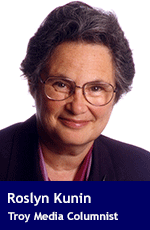 The 2021 federal election is upon us. In Canada, we’re blessed to have fair elections, the results of which are peacefully implemented – so don’t forget to vote.
The 2021 federal election is upon us. In Canada, we’re blessed to have fair elections, the results of which are peacefully implemented – so don’t forget to vote.
There are many nations where people can’t vote. There are many more where their vote doesn’t matter because tyrants have predetermined the results or will use violence to avoid implementing results they don’t like.
Not voting means your most preferred candidate doesn’t get a vote and your least preferred one has one less to make up. Also, if you don’t vote, you give up one of your fundamental democratic freedoms: your moral right to complain about the government.
We’re being inundated with promises from all parties. Not all promises will be kept. For example, in the 1974 election, Justin Trudeau’s father, Pierre, campaigned against wage and price controls and won the election. In 1975, his government implemented wage and price controls.
We accept that the real world intervenes in any plans for the future but we must still decide who gets our vote. Here are some questions to ask candidates or party agents to help make your decision.
Politicians are long on promises but short on delivery by Jay Goldberg
The first question is for those in government and seeking re-election. As they promise us all good things, why have they not already implemented some or all?
Don’t buy the answer that they need a majority in Parliament to do so. The NDP made up a majority when they worked with the Liberals; most major Liberal proposals about things like housing and child care were very compatible with NDP policies. Also, the NDP wasn’t in a rush to defeat the government and call an election. Their position in the just-dissolved federal government was one of the most powerful they’ve ever had.
 A question to ask all candidates and parties as they dangle good things before us is how they plan to pay for all this?
A question to ask all candidates and parties as they dangle good things before us is how they plan to pay for all this?
The government certainly doesn’t have any spare cash. Quite the opposite. Federal government debt, both absolutely and relatively, is the highest it has ever been. In 2020, it was 114 percent of our gross domestic product.
The usual answers involve economic growth and/or tax increases, preferably on people who are richer than we are. Modern monetary theory (MMT) offers another response.
Expecting growth to be strong enough to pay for a debt that’s bigger than our country’s total annual output and growing is dreaming. Canada’s most recent annual growth was less than one percent above the pandemic-induced low level of the previous year. Most advanced economies are growing at much higher rates, some even into double digits.
Taxing the rich is a frequently suggested magic solution. It seems magical because most of us won’t have to pay more taxes. It’s also magical because we don’t have that many rich people. The one-percenters are only one out of a hundred, and most proposals to tax the wealthy start at levels reached by fewer than one percent.
The old maxim about getting less of what you tax applies. If anyone threatened to take away our income or our hard-earned savings, we would take steps to avoid or minimize this.
One of the easiest ways to reduce taxable income is to work less and enjoy more untaxed leisure. Another approach is to avoid the effort and risk of entrepreneurial activity since much of the rewards will disappear in taxes. And it’s from such entrepreneurial efforts that much economic growth comes.
Even the communist government in China recognizes this. It’s implementing a policy called Common Prosperity to provide for more equal levels of income. The income distribution will look like an olive with few at the bottom and most at the fat middle, but there must still be room at the top for some high earners and the wealthy so there will be incentives to contribute to the economy.
Modern monetary theory is beloved by those who don’t want to worry about ever-growing government debts and how to pay them.
Its basic premise is that countries with their own currency can just print money to cover their debts. That will add to the inflationary pressures. It will also lower credit ratings, making the interest burden related to debt even heavier. And it will reduce the value of the currency, making all imports – including foreign travel – more expensive.
A more realistic and optimistic response to how election promises can be fulfilled is to use more analysis of the costs and benefits of proposed policies:
- Do they need to be universal, or should they be targeted to those most in need?
- Should government provide services, or should the private sector do it, perhaps with incentives like tax credits?
- Does science or engineering enable us to develop better policies about health or the environment?
Now don’t forget to vote.
Troy Media columnist Roslyn Kunin is a consulting economist and speaker. For interview requests, click here.
The views, opinions and positions expressed by columnists and contributors are the authors’ alone. They do not inherently or expressly reflect the views, opinions and/or positions of our publication.
© Troy Media
Troy Media is an editorial content provider to media outlets and its own hosted community news outlets across Canada.


